Aadhaar empowers marginalised sections of the society and gives them identity, which outweighs the harm, Supreme Court said, pronouncing the national identity card "constitutionally valid" in response to petitions raising violation of privacy. "One can't throw the baby out with the bathwater," said the judges, which asserted that private parties cannot seek Aadhaar data. The court, in a majority verdict, said Aadhaar is not compulsory for school admission. "Aadhaar gives dignity to marginalised sections, which outweighs the harm," said the court in its verdict on 27 petitions that challenged the constitutional validity of Aadhaar and called it a violation of the right to privacy. The court said "very, very minimal data" is collected for Aadhaar, that other documents required for Aadhaar are also proof of identity.
Uniqueness was the fundamental difference between Aadhaar and other identity proof, the bench said. "We are of the view that there are sufficient safeguards to protect data collected under Aadhaar scheme."
The Supreme Court struck down Section 57 of Aadhaar Act which allows private entities to demand Aadhaar to access services. However, no person will be denied benefits under social welfare scheme because of the failure of authentication through Aadhaar, the judges said. "We direct the government to ensure that illegal migrants are not issued Aadhaar," they said, adding that as of today they did not find anything in Aadhaar Act which violated the right to privacy of individual citizen.
For a record 38 days, the top court heard some 27 petitions - including one by former High Court judge KS Puttaswamy - that had challenged the constitutional validity of Aadhaar and called it a violation of the right to privacy.
Here are the Highlights on Aadhaar Act case:
Here are the main observations of the Supreme Court in its 1,448-page judgement:
* It is better to be unique than the best. Because, being the best makes you the number one, but being unique makes you the only one. 'Unique makes you the only one' is the central message of Aadhaar.
* Education took us from thumb impression to signature, technology has taken us from signature to thumb impression, again.
* The architecture of the Aadhaar Act reveals that the UIDAI is established as a statutory body which is given the task of developing the policy, procedure and system for issuing Aadhaar numbers to individuals and also to perform authentication thereof as per the provisions of the Act.
* Throughout their lives, individuals are supposed to provide information: be it admission in a school or college or at the time of taking job or engaging in any profession or business activity, etc.
When all this information is available in one place, in the form of Aadhaar card, it not only becomes unique, it would also qualify as a document of empowerment. Added with this feature, when an individual knows that no other person can clone it, it assumes greater significance.
* The scheme (Aadhaar) by itself can be treated as laudable, more so, when it is voluntary in nature. Howsoever benevolent the scheme may be, it has to pass the muster of constitutionality.
* In a scenario where the State is coming out with welfare schemes, there cannot be undue intrusion into personal autonomy on the pretext of conferment of economic benefits.
* The architecture of Aadhaar as well as provisions of the Aadhaar Act do not tend to create a surveillance state. This is ensured by the manner in which the Aadhaar project operates.
* The use of Aadhaar number has been increased manifold and, therefore, it is also necessary to take measures relating to ensuring security of the information provided by the individuals while enrolling for Aadhaar card.
* The entire aim behind launching this programme is the 'inclusion' of the deserving persons who need to get such benefits. When it is serving much larger purpose by reaching hundreds of millions of deserving persons, it cannot be crucified on the unproven plea of exclusion of some.
* What we are emphasising is that remedy is to plug the loopholes rather than axe a project, aimed for the welfare of large section of the society. Obviously, in order to address the failures of authentication, the remedy is to adopt alternative methods for identifying such persons, after finding the causes of failure in their cases.
* We again emphasise that no person rightfully entitled to the benefits shall be denied the same on such grounds. It would be appropriate if a suitable provision be made in the concerned regulations for establishing an identity by alternative means, in situations like change in formation of fingerprints for various reasons, or failure of iris test due to certain reasons including blindness of a person.
 Read Here: Aadhaar Verdict: Congress To Move Supreme Court Again On Passage Of Aadhaar Law As Money Bill
Read Here: Aadhaar Verdict: Congress To Move Supreme Court Again On Passage Of Aadhaar Law As Money BillThe Congress on Wednesday said it will approach the Supreme Court to reconsider the plea against passage of the legislation as a money bill, while welcoming the Supreme Court verdict striking down certain provisions of the Aadhaar scheme, terming it a "slap" on the BJP's face.
 Read Here: Aadhaar Verdict: "Congress Won, Like In 2014": Amit Shah's Jibe At Rahul Gandhi On Aadhaar
Read Here: Aadhaar Verdict: "Congress Won, Like In 2014": Amit Shah's Jibe At Rahul Gandhi On AadhaarBJP president Amit Shah on Wednesday mocked Congress chief Rahul Gandhi after he claimed that the Supreme Court order on Aadhaar supported his party's vision, saying, "Yes, the Congress won today, just like they won Lok Sabha Polls in 2014".
"It has been established by the judgement that Aadhaar is not for the state surveillance as profiling is not possible using the minimal data that Aadhaar has. There are sufficient safeguards to disallow any abuse," Unique Identification Authority of India (UIDAI) said welcoming "the historical and landmark majority judgement" of the Supreme Court of India.
"Aadhaar Act has withstood the judicial scrutiny and the purpose of the Act is legitimate," it said, according to news agency PTI.
UIDAI said the Supreme Court has upheld the constitutional validity of Aadhaar and accepted that there is a legitimate state aim in the 12-digit biometric ID.
"Aadhaar as an idea is fully upheld that it does not create a surveillance state and does not violate privacy," it said in a statement.
"The verdict Aadhaar is a tool of empowerment of the marginalised sections of the society," UIDAI said, according to PTI.
The Supreme Court said that not only the commoners but the intelligentsia too was equally divided on the issue and there have been a number of articles and interviews for discourse in favour of or against the biometric ID.
A five-judge constitution bench headed by Chief Justice Dipak Misra said, "We clarify that we have not been influenced by such views expressed either in favour or against Aadhaar," PTI reported.
It said that despite the passions, emotions and annoyance exhibited by both sides in equal measure during the arguments, the Court while giving its judgment on the issues involved is required to have calmness coupled with objective examination of the issues on the touchstone of the constitutional provisions.
"The issue has generated heated public debate as well. Even outside the Court, there are groups advocating in favour of the Aadhaar scheme and those who are stoutly opposing the same," said the bench, also comprising Justice AK Sikri, AM Khanwilkar, DY Chandrachud and Ashok Bhushan.
Justice AK Sikri, who wrote the majority verdict for himself, Chief Justice Dipak Misra and AM Khanwilkar said: "Interestingly, it is not only the commoners who belong to either of the two groups but intelligentsia is also equally divided. There have been number of articles, interviews for discourses in favour of or against Aadhaar".
In a separate 567-page verdict, Justice Sikri said that those in favour see Aadhaar project as ushering the nation into a regime of good governance, advancing socio-economic rights, economic prosperity and in the process they claim that it may make the nation a world leader, according to PTI.
Congress, being the fountainhead of middlemen and corruption, tried every trick to fight and defeat Aadhaar, politically and legally. They tried to mislead people on various grounds, including scare-mongering on privacy. Today they stand exposed and defeated.
- Amit Shah (@AmitShah) September 26, 2018
Aadhaar under UPA Govt was Niradhar and had no purpose. UPA spent thousands of crores to enrol people without any law or scrutiny. Modi Govt gave it strong legal backing and integrated it in service delivery. This ensured savings of Rs 90,000 crores & benefited the poor.
- Amit Shah (@AmitShah) September 26, 2018
Today's Supreme Court Judgment is a strong validation of Aadhaar as an instrument of service delivery. It gives further impetus to empowering the poor by ensuring that they get their rights.
- Amit Shah (@AmitShah) September 26, 2018
This is a landmark judgement in favour of #Aadhaar. More than just opining on the constitutionality of the act, the SC has unequivocally validated the founding principles for Aadhaar. Aadhaar is a unique identity project that is critical to the developmental goals of the nation.
- Nandan Nilekani (@NandanNilekani) September 26, 2018
Aadhaar includes, it doesn't exclude. The resident was once again recognised as being at the heart of the project, and they have gained new rights that help them assert their ownership over their data.
- Nandan Nilekani (@NandanNilekani) September 26, 2018
Aadhaar has undergone the ultimate scrutiny in the highest court, and a lot of recommendations have been incorporated. Through the democratic process of discussion and debate, we have created a better and stronger Aadhaar together.
- Nandan Nilekani (@NandanNilekani) September 26, 2018
"After holistic consideration, my opinion is that the majority judgement on the validity of Aadhaar Act is correct though I have not read the whole judgement yet," the 92-year-old retired Karnataka High Court judge told the media in Bengaluru, reported IANS.
A five-judge bench headed by Chief Justice Dipak Misra held that Aadhaar would be voluntary and not mandatory with an option to exit.
On linking of Aadhaar with Permanent Account Number (PAN) mandatory, the retired judge said those who pay income tax are limited and they belong to a separate class, according to IANS.
AIBEA General Secretary CH Venkatachalam also said that banks should stop issuing Aadhaar cards as it was not a banking activity.
"The Supreme Court order making it unconstitutional the compulsory linking of Aadhaar cards with bank accounts is welcome," he said.
"As far as banks are concerned, an Aadhaar card is one more card for identification of a person while opening an account. No other purpose is served beyond that," Mr Venkatachalam told IANS.
Another ex-CFO of Infosys, V Balakrishnan said the top court has come out with a balanced view on the issue.
".. the Supreme Court has in effect addressed many of the concerns related to wide use of Aadhaar data and resulting data privacy issues," Mr Balakrishnan said.
 Read Here: Aadhaar Act Verdict: Arun Jaitley, Finance Minister: Aadhaar Helped Centre Save Rs 90,000 Crore Annually
Read Here: Aadhaar Act Verdict: Arun Jaitley, Finance Minister: Aadhaar Helped Centre Save Rs 90,000 Crore AnnuallyDescribing the Supreme Court judgement on Aadhaar as "historic", Finance Minister Arun Jaitley today said it has helped the government in saving Rs 90,000 crore every year with targeted delivery of government schemes.
 Passing Aadhaar Law As Money Bill A Fraud, Says Justice DY Chandrachud In Dissent Ruling
Passing Aadhaar Law As Money Bill A Fraud, Says Justice DY Chandrachud In Dissent RulingAs Aadhaar was declared constitutionally valid with conditions by a majority verdict of the Supreme Court, one of the five judges said the national identity card scheme, in its current form, cannot be held to be constitutional. "Allowing private players to use Aadhaar will lead to profiling which could be used to ascertain political views of citizens," said Justice DY Chandrachud in his dissenting judgement.
The following is the chronology of events leading up to the Supreme Court on Wednesday declaring the centre's flagship Aadhaar scheme as constitutionally valid although it struck down some provisions including the linking of the biometric ID with bank accounts, mobile phones and school admissions, according to news agency Press Trust of India:
* January 2009: Planning Commission notification on UIDAI.
* 2010-2011: National Identification Authority of India Bill, 2010 introduced.
* November 2012: Retired Justice KS Puttaswamy and others file pleas in Supreme Court challenging validity of Aadhaar.
* November 2013: Supreme Court orders all states and Union Territories be impleaded as respondents.
* March 3, 2016: Aadhaar Bill, 2016 introduced in Lok Sabha; later passed as Money Bill.
* May 2017: Former Union minister and Congress leader Jairam Ramesh moves Supreme Court challenging the centre's decision to treat Aadhaar bill as a money bill.
* August 24, 2017: Supreme Court nine-judge bench rules that right to privacy is a fundamental right.
* December 15: Supreme Court extends deadline for mandatory linking of Aadhaar with various services and welfare schemes till March 31, 2018.
* January 17, 2018: Supreme Court five-judge bench begins hearing Aadhaar case.
* January 25: Supreme Court asks Chhattisgarh High Court to modify in 10 days its order directing all trial courts in the state to mandatorily accept copies of Aadhaar card for releasing an accused on bail.
* Febuary 19: Delhi BJP leader Ashwini Kumar Upadhyay seeks direction to Election Commission to take appropriate steps to implement an 'Aadhaar based election voting system'.
* February 21: Supreme Court says the alleged defect that citizens' biometric details under the Aadhaar scheme were being collected without any law, could be cured by subsequently bringing a statute.
* March 7: Supreme Court says Aadhaar number not mandatory for enrolment of students in all India exams.
* March 13: Supreme Court extends March 31 deadline of Aadhaar linking till it gives its order.
* March 22: UIDAI CEO says breaking the Aadhaar encryption may take "more than the age of the universe for the fastest computer on earth".
* March 28: Social activist Reshma Prasad seeks direction to the centre to create a separate third gender category option on PAN cards for transgenders.
* April 3: Centre tells Supreme Court that Aadhaar law is just, fair & reasonable.
* April 17: Supreme Court raises concerns that there is a threat of Aadhaar data misuse.
* April 25: Supreme Court questions centre on mandatory seeding of Aadhaar with mobile.
* May 10: Supreme Court reserves verdict.
* September 26: Supreme Court upholds constitutional validity of Aadhaar but strikes down certain provisions including its linking with bank accounts, mobile phones and school admissions.
A five-judge constitution bench headed by Chief Justice Dipak Misra held that Aadhaar is constitutionally valid but struck down some of its provisions, including its linking with bank accounts, mobile phone connections and school admissions.
The Supreme Court judgement kept the provision of Aadhaar mandatory for filing of IT returns and allotment of Permanent Account Number (PAN), according to PTI.
"It is a historic judgement and the whole concept of unique identity number that has been accepted after judicial review is an extremely welcome decision.
"There are now 122 crore people in India who have Aadhaar cards and our estimation is that by identifying beneficiaries of government schemes and ensuring that there are no fake or duplicate or non-existent beneficiaries, we are already saving Rs 90,000 crore every year," Mr Jaitley said, PTI reported.
The majority judgment in the Aadhaar case has retrieved the UPA's original idea of Aadhaar. Aadhaar was meant to be a benign instrument to deliver benefits, subsidies and services to the poor. Glad that the UPA's policy has been vindicated.
- P. Chidambaram (@PChidambaram_IN) September 26, 2018
Several provisions of the Act and the Regulations have been struck down as unconstitutional.
- P. Chidambaram (@PChidambaram_IN) September 26, 2018
That is a humbling lesson for the Ministry of Law.
The Act came perilously close to being struck down on the ground it was passed as a Money Bill when it was not. The Act was saved by judicial forbearance.
- P. Chidambaram (@PChidambaram_IN) September 26, 2018
The dissenting judgment of Justice Chandrachud has many valuable lessons for all governments, especially the imperious NDA government. They would do well to heed those lessons.
- P. Chidambaram (@PChidambaram_IN) September 26, 2018
Aadhaar remains work in progress. A future government will surely bring in amendments.
- P. Chidambaram (@PChidambaram_IN) September 26, 2018
For now, we can be satisfied that a rampaging government has been restrained and the reach of Aadhaar has been contained to benefits, subsidies and services paid out of the Consolidated Fund of India.
- P. Chidambaram (@PChidambaram_IN) September 26, 2018
For Congress, Aadhaar was an instrument of empowerment.
- Rahul Gandhi (@RahulGandhi) September 26, 2018
For the BJP, Aadhaar is a tool of oppression and surveillance.
Thank you Supreme Court for supporting the Congress vision and protecting #AadhaarVerdict
"People should have some rights. If bank and mobile phones are linked to Aadhaar card then everything about the person will come into public domain. That this logic is correct and irrefutable has been proved today," Ms Banerjee told the media.
"We don't compromise or raise questions on government security or internal security. But if my account number becomes public, I may be cheated. This has already happened in ATM transactions," said Ms Banerjee, who is visiting Italy in a bid to rope in investment for her state, according to news agency IANS.
Similarly, if the mobile phone number is linked to Aadhaar, "then the messages you send, or the calls you make, all information gets leaked".
Calling the verdict a victory of the people, she said she has neither linked her bank account nor her mobile number to Aadhaar and have also asked people not to do so, reported IANS.
In a majority judgment, a five-judge bench headed by Chief Justice Dipak Misra held that Aadhaar would be voluntary and not mandatory with an option to exit.
Aadhaar in public service delivery. #Aadhaar4Development pic.twitter.com/p3YPTZ31Ob
- BJP (@BJP4India) September 26, 2018
Aadhaar helped in saving whopping Rs. 90,000 crore of public money. #Aadhaar4Development pic.twitter.com/dGrypPBtOt
- BJP (@BJP4India) September 26, 2018
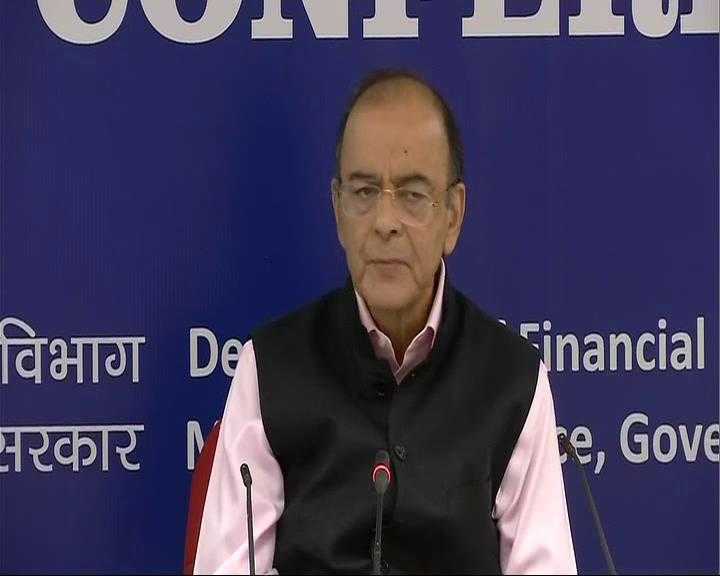
 Aadhaar Law Shouldn't Have Been Money Bill, Can Be Struck Down: Justice Chandrachud
Aadhaar Law Shouldn't Have Been Money Bill, Can Be Struck Down: Justice ChandrachudAs Aadhaar was declared constitutionally valid with conditions by a majority verdict of the Supreme Court, one of the five judges said the national identity card scheme, in its current form, cannot be held to be constitutional. "Allowing private players to use Aadhaar will lead to profiling which could be used to ascertain political views of citizens," said Justice DY Chandrachud in his dissenting judgement."
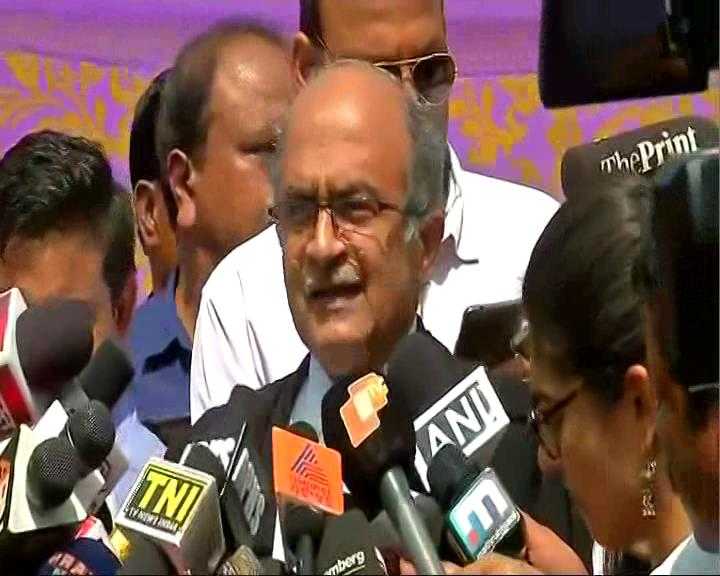
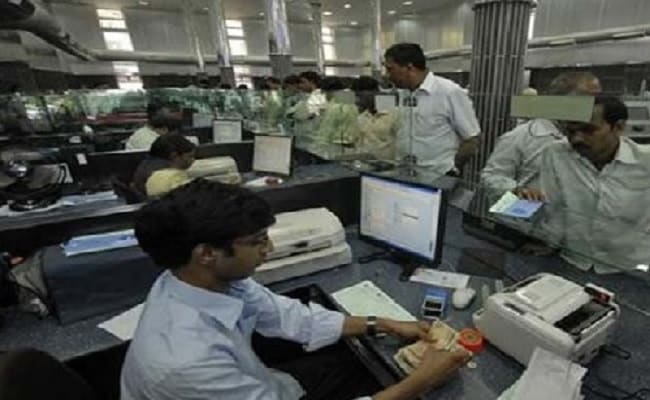 Aadhaar Verdict: PAN Linking For Income Tax Stands, Bank Account Linking Set Aside
Aadhaar Verdict: PAN Linking For Income Tax Stands, Bank Account Linking Set AsideThe Supreme Court has allowed linking of Aadhaar with PAN or Permanent Account Number, which is mandatory for filing of income tax return (ITR). The top court, however, ruled that it is not mandatory to link bank accounts with the 12-digit personal identification number. The Supreme Court said benefits under the Aadhaar project should be in the nature of welfare schemes and it cannot be made compulsory for services such as bank accounts, mobile connections or school admissions. The much-awaited verdict on the Aadhaar matter comes after several petitions had challenged the system on the grounds that it violates privacy. The top court, however, ruled that it is not mandatory to link bank accounts with the 12-digit personal identification number."
We welcome the Supreme Court's decision to strike down Section 57 of the Aadhaar Act. Private entities are no longer allowed to use Aadhaar for verification purposes. #AadhaarVerdict
- Congress (@INCIndia) September 26, 2018
- Access confronts serious impediment
- Digital nation must not submerge identity
- Aadhaar raises questions. Technology violates human freedom
- Decision of speaker to treat as Money Bill is amenable to judicial review
- Aadhaar data obtained very minimal, benefits to marginal large
- Private firms can't access Aadhaar data
- Aadhaar not compulsory for school admissions
- No child can be denied benefits for want of Aadhaar
- Aadhaar-PAN linking allowed
- Aadhaar-bank account and mobile link struck down
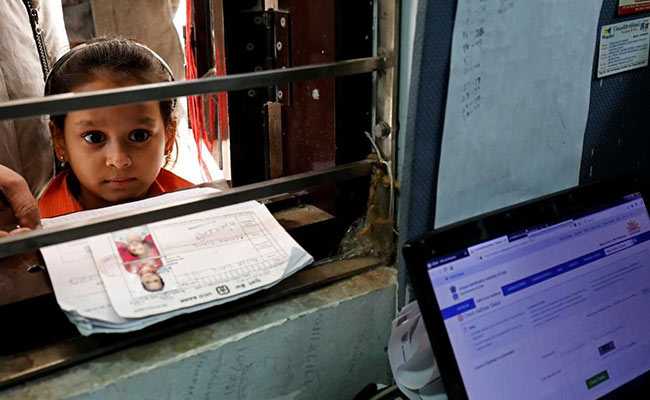
- School admissions not a benefit under Section 7, Aadhaar cannot be mandated for the same
- No child shall be denied the benefit of any scheme, if by any mens, they are not able to submit Aadhaar
- CBSE, NEFT, UGC cannot ask for Aadhaar
- The Judgment also deals with Proportionality doctrine, compelling State interest and Strict Scrutiny Test
- Concept of Human dignity has been enlarged in the judgment.
- Authentication of records not to be kept for more than six months
- Education has taken us from thumb impression to signature
- Difficult to create a profile of persons with this data
- Private parties can't seek Aadhaar data
#Aadhaar was made the overarching proof of identity and residence, overriding all other prior identity proofs.
- NDTV (@ndtv) September 26, 2018
But as it was rolled out, there were concerns about privacy, data security and recourse for citizens in the face of data leaks.
Read more here: https://t.co/9v4KNQtTX4 pic.twitter.com/evgPUaLV3R
Attack on aadhaar by petitioners is based on violation of rights under Part III of the Constitution, will lead us to become a surveillance State.
- Architecture of Aadhaar reveals that UIDAI is statutory body given task of authentication.
- Aadhaar treated as unique and cannot be assigned to any other person
- Attack of the petitioners on the Aadhaar program is founded on the argument that it is a risk to the rights and privacy of citizens
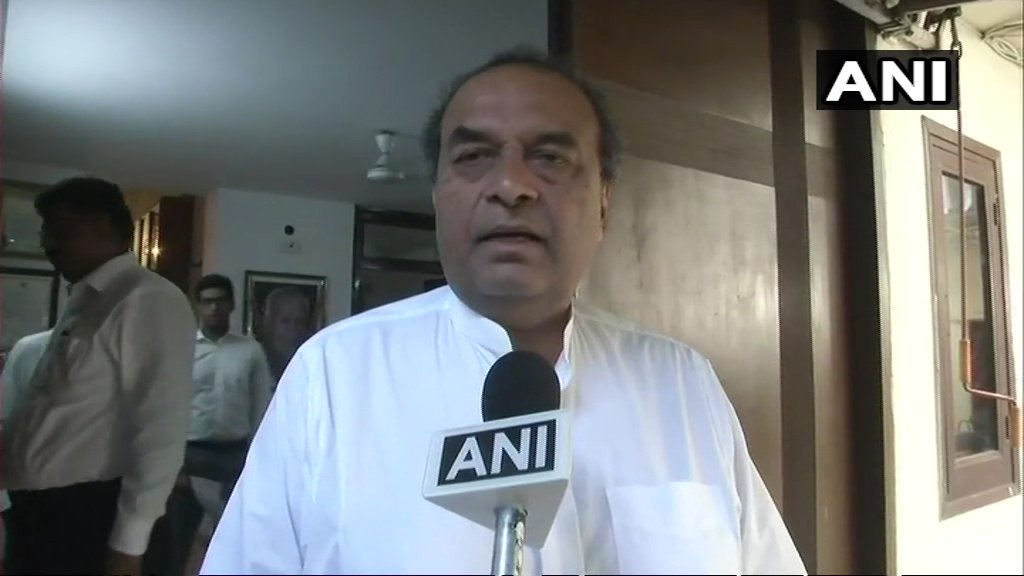
 Court heard case for 38 days, hearing spread over 4 months
Court heard case for 38 days, hearing spread over 4 monthsA decision on whether Aadhaar, or the national identity card, violates the Constitution, will be declared by five senior most judges of the Supreme Court today. For a record 38 days, the Supreme Court heard some 27 petitions that had challenged the constitutional validity of Aadhaar and called it a violation of the right to privacy."
 Aadhaar Verdict: Can Aadhaar Be Made Compulsory? Supreme Court Decision Today
Aadhaar Verdict: Can Aadhaar Be Made Compulsory? Supreme Court Decision TodayA decision on whether Aadhaar, or the national identity card, violates the Constitution, will be declared by five senior most judges of the Supreme Court today. For a record 38 days, the Supreme Court heard some 27 petitions that had challenged the constitutional validity of Aadhaar and called it a violation of the right to privacy."

- He retired as Judge of the Karnataka High Court
- He is the oldest petitioner - 92 years
- Justice (Retd) KS Puttaswamy lives in Bangalore
- He was born on 8 Feb 1926
- She is a retired army officer
- She was awarded Vishista seva medal in 1993
- National Convenor of Safai Karamvhari Andoloan
- She is a Raman Magsayay awardee
- Taught in London School of Economics
- Visiting Professor Ranchi University
- Authored book with Amartya Sen
- Securities and systems specialist
- 35 years experience in electronic and embedded systems
- MS in computer science
- 34 years of experience including 16 years in computer security


